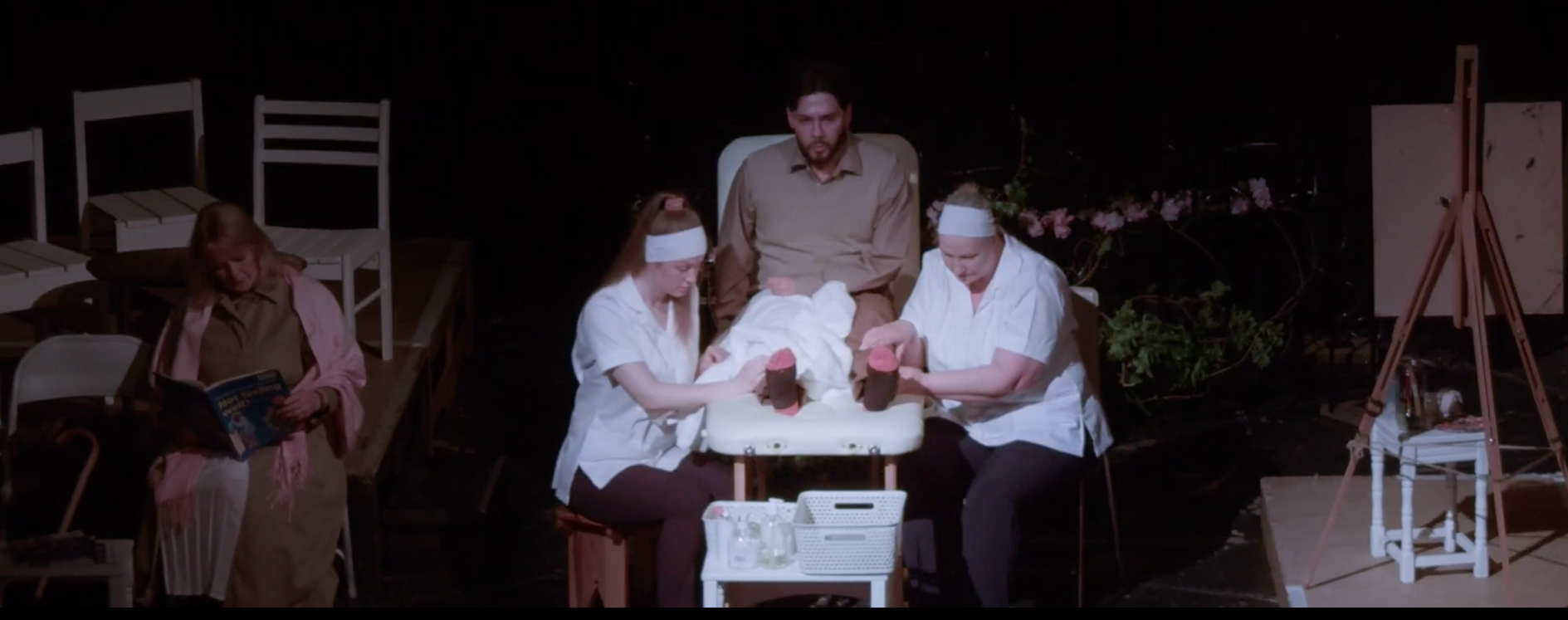A new opera inspired by findings from large-scale research involving thousands living with dementia has launched in Wales, aiming to increase understanding and reduce the stigma of dementia.
The one-act opera project was led by PenARC’s Dementia theme lead, Professor Linda Clare and is part of the extensive Improving the Experience of Dementia and Enhancing Active Life (IDEAL) Project. This opera, entitled ‘Y Bont/The Bridge’, is the latest creative output from the project, creating an impactful and thought-provoking way to share the experiences of people living with dementia. The same research team have previously been behind an innovative research play and documentary film The World Turned Upside Down which highlights the importance of communication.
The opera seeks to harness the power of the human voice and instrumental music to create a sensory piece that portrays to the audience what it might sound and feel like to experience dementia. You can watch the opera in full below.
Funded by the Arts Council of Wales and staged in English and Welsh, the opera depicts how life changes for a husband and wife when confusion over something as innocuous as a cup of tea signals the progression to a diagnosis of dementia. The audience witnesses the husband’s frustration as those around him purport to help and understand yet are seemingly oblivious to his needs. We see the difference it makes when someone really does try to connect.
Dr Claire Pentecost, IDEAL programme manager, said:
“We are translating findings from the IDEAL study in a variety of ways, including the Opera, to reach different audiences. We want to use these methods to raise awareness of dementia and offer hope that people can experience a good quality of life as they live with the condition in creating outputs such as our Living with Dementia toolkit, we want to offer hope as well as practical options for dealing with dementia positively.”
Professor Linda Clare, Chief Investigator of the IDEAL programme, said:
“Using performance is a powerful way to bring our research findings to life and convey aspects of what it can be like to live with dementia, or support someone with dementia. We learn a great deal, too, when audience members share their insightful reflections on what they have seen and heard.
“It’s a huge privilege to have a talented group of artists engaging with our work and translating it to enhance public awareness about dementia.”
The opera’s cast and crew spoke with IDEAL’s project involvement group, Action on Living Well: Asking You (ALWAYs), which is made up of people who live with dementia and carers, who provided insights into their unique experiences of living with dementia and its effect on families. This helped result in the creation of an opera that represents authentic lived experiences.
The librettist and director of the opera, Marian Bryfdir said:
“Singing and music, especially in the form of an opera, can often express an extraordinary range and depth of emotion. Dementia, by its nature, affects the expression and communication of innermost anger, grief or even joy and happiness.
“That was my starting point for Y Bont/The Bridge – to illustrate the frustration experienced by many living with dementia due to a lack of sensitivity, experience and knowledge from those around them.”
Dafydd Rhys, Chief Executive, Arts Council of Wales said:
“We are proud to support this operatic project and the community work taking place in Anglesey and Gwynedd. The arts play a major role in reducing social isolation for those living with dementia and providing them and their carers with enriching cultural activities. We can also learn from projects like these on how to make spaces and activities more accessible and dementia friendly. It is a fantastic example of how groups and organisations can work together to highlight the positive benefits the arts can have on health and wellbeing.”
The opera score was created by acclaimed composer Dr Edward Wright, whose previous commissions include Botany, a choral work for Llandudno Arts Festival, Space to Think for Electroacoustic-Wales, and Polarities for symphony orchestra and electronics.
The IDEAL study, funded by Economic and Social Research Council (ESRC), the National Institute for Health Research (UK) and Alzheimer’s Society recruited 1,547 people diagnosed with mild to moderate dementia and 1,283 carers with a focus on identifying factors which make a difference to the quality of life of people living with dementia and their carers. The findings informed the five themes of the Living with Dementia Toolkit: Stay safe and well; Stay connected; Keep a sense of purpose; Stay active; and Stay positive.

